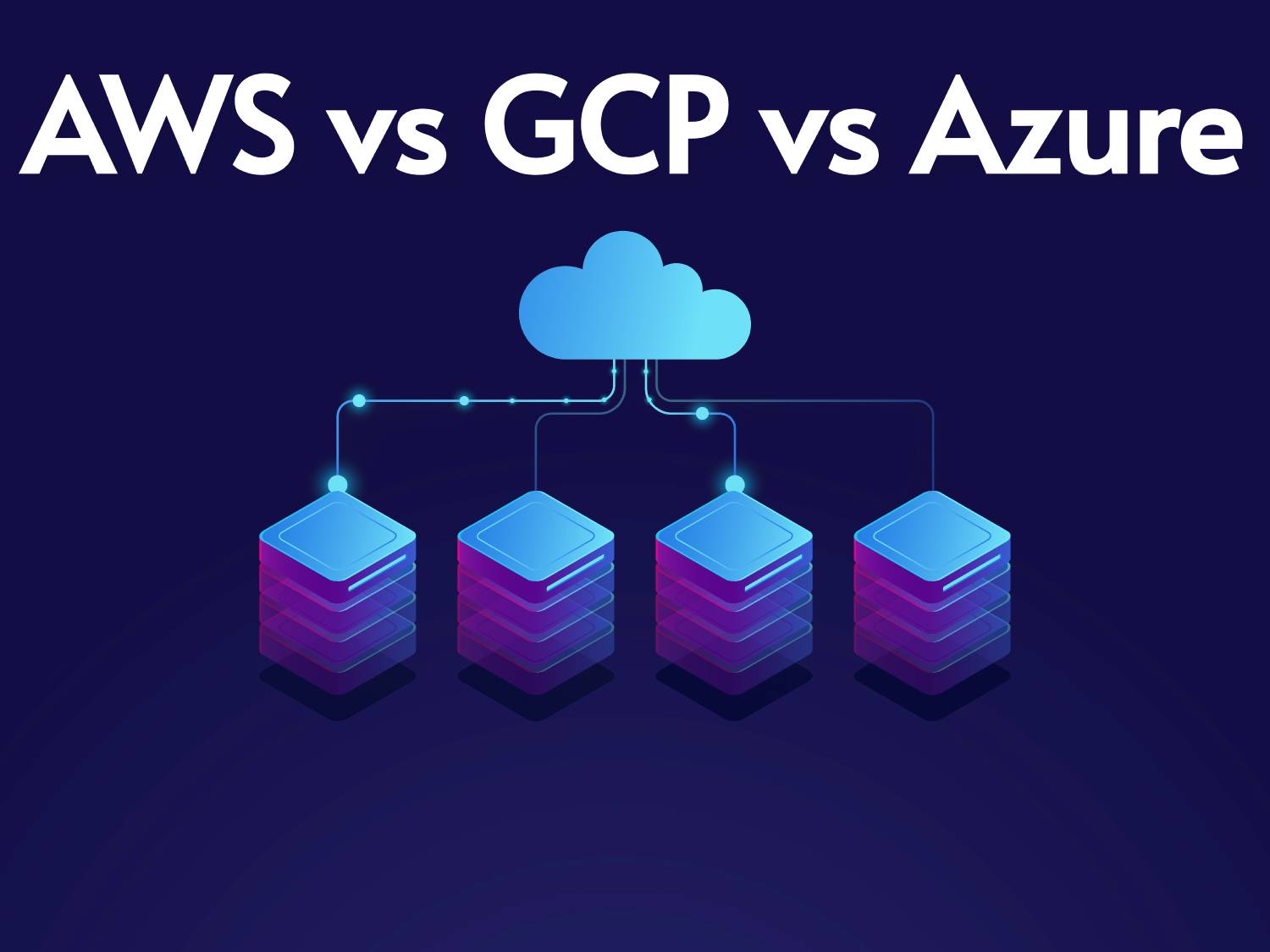In today’s digital era, cloud platforms have become indispensable tools for developers and businesses alike. Whether you’re building scalable applications, deploying machine learning models, or storing massive amounts of data, choosing the right cloud development platform is critical to success. This blog offers a comprehensive comparison of the top cloud platforms — Amazon Web Services (AWS), Google Cloud Platform (GCP), and Microsoft Azure — using key parameters, including cloud platform consoles, managed services, pricing, performance, and storage.
1. Introduction to Cloud Development Platforms
Cloud platforms are the backbone of modern web and mobile applications. They allow developers to rent computing resources, databases, networking, and storage through a flexible, pay-as-you-go model. The major players in the cloud space — AWS, GCP, and Azure — offer a suite of services tailored to developers, enterprises, and startups.
2. Key Features of a Cloud Development Platforms
When evaluating a cloud development platform, consider the following features:
- Scalability: Automatic scaling to handle varying traffic loads.
- Compute Services: Virtual machines, containers, and serverless computing.
- Storage Options: Object storage, block storage, file systems.
- Managed Services: Fully managed databases, AI/ML platforms, analytics, etc.
- Security: Identity access management, encryption, firewalls.
- Global Infrastructure: Data centers and regions across the globe.
- Developer Tools: SDKs, APIs, deployment tools.
3. Amazon Web Services (AWS)
Launched in 2006, AWS is the most widely adopted cloud platform globally. It offers over 200 fully featured services from data centers worldwide. Key offerings include:
- EC2 (Elastic Compute Cloud): Scalable virtual servers.
- S3 (Simple Storage Service): Object storage with high durability.
- RDS (Relational Database Service): Managed databases.
- Lambda: Serverless computing.
- Elastic Kubernetes Service (EKS): Container orchestration.
- CloudFront: Content delivery network.
AWS has a robust ecosystem and a powerful cloud platform console that allows developers to manage resources with ease.
4. Google Cloud Platform (GCP)
GCP, a product of Google, leverages the same infrastructure used for services like Google Search, YouTube, and Gmail. It excels in data analytics, AI, and machine learning. Some highlights:
- Compute Engine: Customizable virtual machines.
- Cloud Storage: Secure, scalable object storage.
- BigQuery: Serverless, highly scalable analytics.
- Cloud Functions: Event-driven serverless computing.
- Google Kubernetes Engine (GKE): Managed Kubernetes.
GCP offers comprehensive Google Cloud Platform managed services that are easy to integrate into existing applications.
5. Microsoft Azure
Azure is Microsoft’s cloud offering, popular among enterprises due to seamless integration with Windows Server, Active Directory, and Microsoft 365. Notable services:
- Virtual Machines: Linux and Windows VMs.
- Blob Storage: Highly available object storage.
- Azure SQL Database: Fully managed relational database.
- Functions: Serverless application platform.
- Azure Kubernetes Service (AKS): Container management.
The Azure cloud platform is known for its enterprise-ready solutions, hybrid cloud capabilities, and strong compliance support.
6. Amazon Web Services vs Google Cloud Platform
Compute Services
- AWS EC2 offers more instance types and flexibility.
- GCP Compute Engine provides sustained-use discounts and custom machine types.
Storage
- AWS S3 is the industry standard for object storage.
- GCP Cloud Storage offers comparable performance with superior regional redundancy.
Machine Learning & AI
- GCP excels with TensorFlow, AutoML, and AI Platform.
- AWS offers SageMaker and Rekognition, but is slightly behind in ease of use.
Networking
- GCP benefits from Google’s backbone network.
- AWS has better integration with enterprise VPNs and Direct Connect.
7. Azure Cloud Platform vs Others
Strengths
- Hybrid Cloud: Azure Stack for on-premise integration.
- Enterprise Focus: Best choice for Microsoft-centric organizations.
- DevOps: Integrated with GitHub, Azure DevOps, and Visual Studio.
Weaknesses
- Complex Pricing: It can be difficult to estimate costs.
- Steeper Learning Curve: Requires more initial setup.
8. Cloud Platform Console Comparison
AWS Console
- Feature-rich, but can feel overwhelming.
- Powerful CLI and SDK support.
GCP Console
- Clean UI, easier for beginners.
- Powerful monitoring and logging tools.
Azure Console
- Intuitive for Microsoft users.
- Deep integration with on-premise systems.
9. Managed Services Overview
All three platforms provide managed services, but here’s how they stand out:
- AWS: Extensive catalog (RDS, Aurora, DynamoDB).
- GCP: Simplified approach, excels in Google Cloud Platform managed services like BigQuery.
- Azure: Best for integrating with Windows services (Azure SQL, Cosmos DB).
10. Pricing and “How Much Cloud Storage” Costs
Storage Comparison
- AWS S3 Standard: ~$0.023/GB/month.
- GCP Cloud Storage Standard: ~$0.020/GB/month.
- Azure Blob Storage Hot Tier: ~$0.018/GB/month.
Free Tiers
- AWS: 5GB S3, 750 hours EC2, 25GB DynamoDB.
- GCP: $300 credit + always free 5GB storage, 1 f1-micro instance.
- Azure: 12 months of free services + 5GB storage.
Cost Optimization
- GCP: Sustained-use discounts, committed use.
- AWS: Reserved instances, savings plans.
- Azure: Reserved VM instances, spot VMs.
11. Final Verdict: Choosing the Right Cloud Platform
Choose AWS if:
- You need the most comprehensive service catalog.
- You are running large-scale enterprise applications.
Choose GCP if:
- Your focus is on data science, analytics, and AI.
- You prefer a clean UI and an easier setup.
Choose Azure if:
- You use Microsoft tools like Windows Server, SQL Server, or Active Directory.
- You want strong hybrid cloud capabilities.
Each cloud development platform has its strengths. The best choice depends on your team’s needs, tech stack, and long-term goals.
Whether you’re evaluating how much cloud storage you need or comparing Amazon Web Services vs Google Cloud Platform, this guide should help you make an informed decision for your next cloud deployment.
Need help migrating your apps to the cloud? Reach out to our cloud consultants for tailored advice and solutions.




